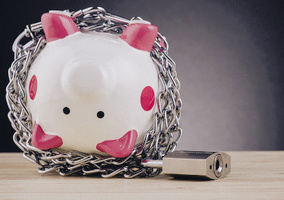The purpose of this article is not to question the rights and wrongs of the introduction of VAT on independent school fees but to look at what has worked well, what has not and what could have been done better.
The positives
The ongoing challenge for the sector should not be underestimated. The vast majority of schools had always made some level of taxable supplies and almost all would have had the ability to recover at least some VAT, but not enough to warrant VAT registration. As a result, costs were generally not recorded on a net-plus-VAT basis as there was no reason to.
Accounting packages were simplistic with many not being Making Tax Digital compatible and understaffed finance teams having to learn how to code costs for partial exemption purposes, and implement new accounting packages in less than a year. In effect, an entirely new tax was applied to a sector in a very short space of time.
If the government is able to look back in a couple of years and say the measure was introduced successfully, then that success will be largely down to the quality of bursars and the diligence with which they have approached the introduction of the tax on top of their day jobs. The quality of the questions which have been posed to me in the last couple of years has been remarkable.
While proponents of the tax seem to have a subconscious bias against the sector, associating it with privilege and tax avoidance, the time, effort and money the sector has spent on preparing to try and get its VAT affairs right proves this to be wrong. And if the government does bring in the intended level of revenue, then it is the finance staff in the sector, not HMRC, who ministers should be thanking.
The negatives
The main negatives stem from the policy direction set by the government and a lack of understanding of the sector by HMRC. This led to overly complex legislation which created tensions in the system and HMRC guidance to the sector changed on a weekly basis.
The VAT legislation prior to 1 January 2025 exempted the supply of education and of goods and services which were closely related to it, such as school meals and school trips. For reasons best known only to itself, the government decided to remove the exemption from fees for education and boarding but to retain it for school meals and certain school trips.
The problem this causes is that it cuts across the fundamental principle in VAT of composite supplies where two or more elements can be supplied together and adopt the same VAT treatment. HMRC’s answer was to say if you bill meals separately then you can exempt them when that is simply not the correct legal test. Allowing a school to decide whether it should charge VAT or not may suit schools now, but it leaves the position open to challenge in the future.
Other examples of HMRC policy being made on the hoof include the treatment of VAT on pre-registration services. Initially, HMRC said schools could not time-apportion a service spanning periods pre- and post-1 January like an IT licence (even though this was contrary to its existing guidance) before ultimately accepting they could, but in some cases, after the first return on which a claim could be made had been submitted. Similarly, the apparent position HMRC has taken in respect of full bursaries seems to be that it will not constitute a non-business activity but it has refused to confirm this in writing.
Lessons to be learnt (and written out in chalk on a blackboard 100 times)
If the government was worried about the loss of revenue from pre-payments of school fees, then it largely prevented this through its anti-forestalling measure. It did not need to rush and could have deferred the introduction to the start of the 2025-26 academic year.
That would have allowed more of the issues to be worked through prior to the tax being introduced rather than afterwards. Introducing a new accounting package would typically take a year and the extra time would allow for systems to be correctly set up and not rushed.
If a government wishes to introduce a tax, then it can, but it should do so sensibly and not rush it.
Phil Salmon is partner and co-head of VAT at HaysMac













